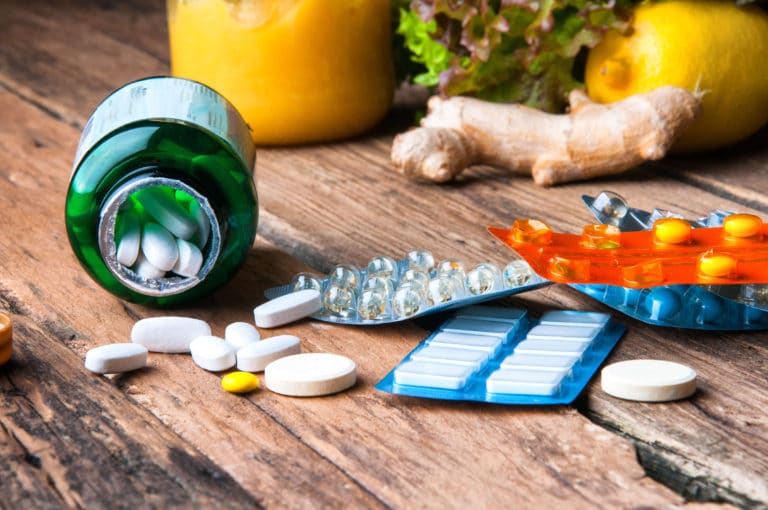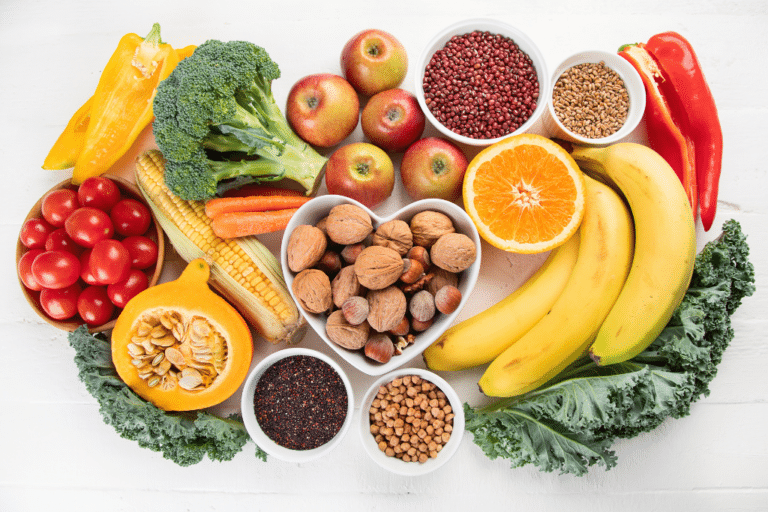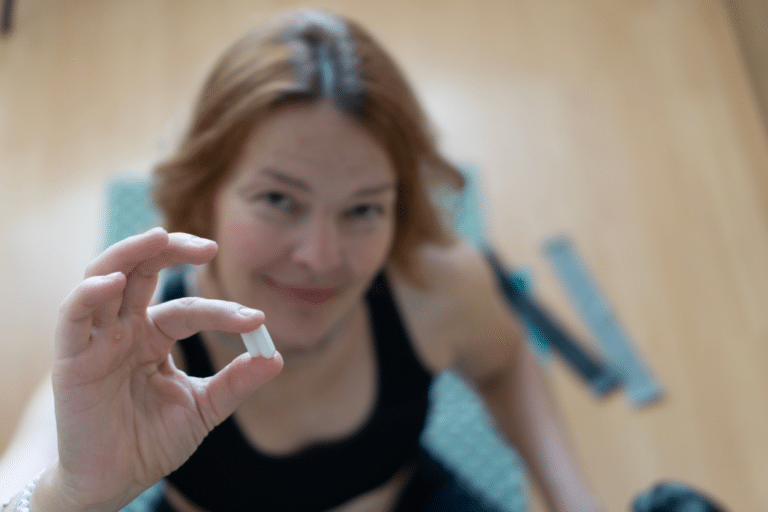Gut Healing in Perimenopause
If you’re struggling with gut health, you may be wondering what steps you can take to improve it. If you missed previous articles about gut, hormones, and mood, you can read them here, here, and here.
Healing gut problems can be fairly quick (as in the case of low stomach acid) or can take months (as in the case of severe leaky gut). The first key to success is to find the root cause of what’s going on and remove it. From there, we replace what’s missing, like stomach acid or bile, repopulate the good bacteria, repair the damaged gut lining, and restore a state of balance.
There are a number of lifestyle changes and supplements that can be helpful in this process, depending on what your root cause is.
Lifestyle Changes
One of the most powerful ways to address gut dis-ease is to practice good eating hygiene.
What does this mean?
It means chewing thoroughly, eating slowly, avoiding large amounts of liquid during your meal, and remembering to BREATHE as you eat!
Other helpful strategies include exercising, limiting alcohol, and managing stress.
Food sensitivities also play a big role in gut health. You don’t have to have a full-on allergy attack to be sensitive to a food. Notice when a certain type of food causes joint pain, skin problems, bloating, fatigue after a meal, or anxiety. Try removing it and then reintroducing it to see if it’s causing problems. Common foods that people are sensitive to include gluten, dairy, eggs, corn, peanuts, soy, and nightshades (peppers, tomatoes, eggplant, etc).
Supplements
There is a whole universe of supplements designed to help with gut health, but listed below are a few of my favorites.
L-Glutamine
Glutamine is an important amino acid. In the digestive tract, it’s best known for helping to repair the intestinal lining.
Research from 2015 showed that glutamine can improve the growth and survival of enterocytes, or intestinal cells. It may also help to regulate the function of the intestinal barrier during stress.
In another small recent study, researchers found that even a low dose of oral glutamine could improve intestinal permeability after strenuous exercise. As a bonus, it can also help abort sugar cravings!
Fiber
Dietary fiber is an important component of a healthy diet. Fiber works in a similar way as probiotics to improve the microbiome.
When fiber is fermented by the gut flora, it creates a short-chain amino acid called butyrate. Butyrate supplementation may stimulate mucus production and improve tight junctions in the lining of the tract.
Probiotics
Probiotics are well-known for their therapeutic use in the management and treatment of gastrointestinal diseases. These live microorganisms help to improve the microbiome of the gut, which can have positive system-wide effects.
In a 14-week trial from 2012, researchers investigated the usefulness of a multi-strain probiotic supplement after intense exercise. They found that zonulin, a marker of gut leakage, was significantly lower in the probiotic supplementation group.
Prebiotics
Prebiotics are a type of fiber that the human body cannot digest. They serve as food for probiotics, which are tiny living microorganisms, including bacteria and yeast. Both prebiotics and probiotics may support helpful bacteria and other organisms in the gut. Prebiotics are present in fiber-rich foods, such as fruits, vegetables, and whole grains. Here’s a more complete list of prebiotic foods. There are also prebiotic supplements.
Zinc
Zinc is a necessary element of many metabolic processes and is well-known for its ability to boost the immune system.
A 2001 study found that zinc supplementation helped to strengthen the gut lining in patients with Crohn’s disease. Research from 2015 also suggests that zinc is able to modify the tight junctions of the intestinal lining, helping to limit gut permeability. My preferred product is zinc carnosine.
Licorice Root (DGL)
Licorice root contains almost 75 bioactive compounds. This includes glycyrrhizin (GL), a compound known for producing adverse effects like hypertension in humans. DGL is a substance that’s had the GL removed for consumption. Note: if you are using licorice for adrenal support, you WANT the form that has the glycyrrhizin in it.
DGL may have various gastric benefits, such as reducing inflammation and increasing mucus production.
Mucilaginous herbs
Mucilaginous herbs derive their properties from the polysaccharides they contain. These polysaccharides have a ‘slippery,’ mild taste and swell in water, producing a gel-like mass that can be used to soothe and protect irritated tissues in the body, such as dry, irritated skin and sore or inflamed mucous membranes. Doesn’t sound really sexy, but they basically coat the lining of the gut to help it heal. Examples of these herbs include slippery elm, marshmallow root, and chia seeds.
You can find all of these products here:
Rest and Repair
Gut healing is a PROCESS that takes careful attention to avoiding irritants and allowing your gut lining (which is only one cell thick) to rest and repair itself. While you don’t have to know the exact imbalance you are experiencing, it is very helpful in order to create a targeted, stepwise approach to healing. You can find out more about what my team offers for gut health using the button below.
Dr. Anna Garrett is a menopause expert and Doctor of Pharmacy. She helps women who are struggling with symptoms of perimenopause and menopause find natural hormone balancing solutions so they can rock their mojo through midlife and beyond. Dr. Anna is the author of Perimenopause: The Savvy Sister’s Guide to Hormone Harmony. Order your copy at www.perimenopausebook.com.
Dr. Anna is available for 1-1 consultation. Find out more at www.drannagarrett.com/lets-talk




